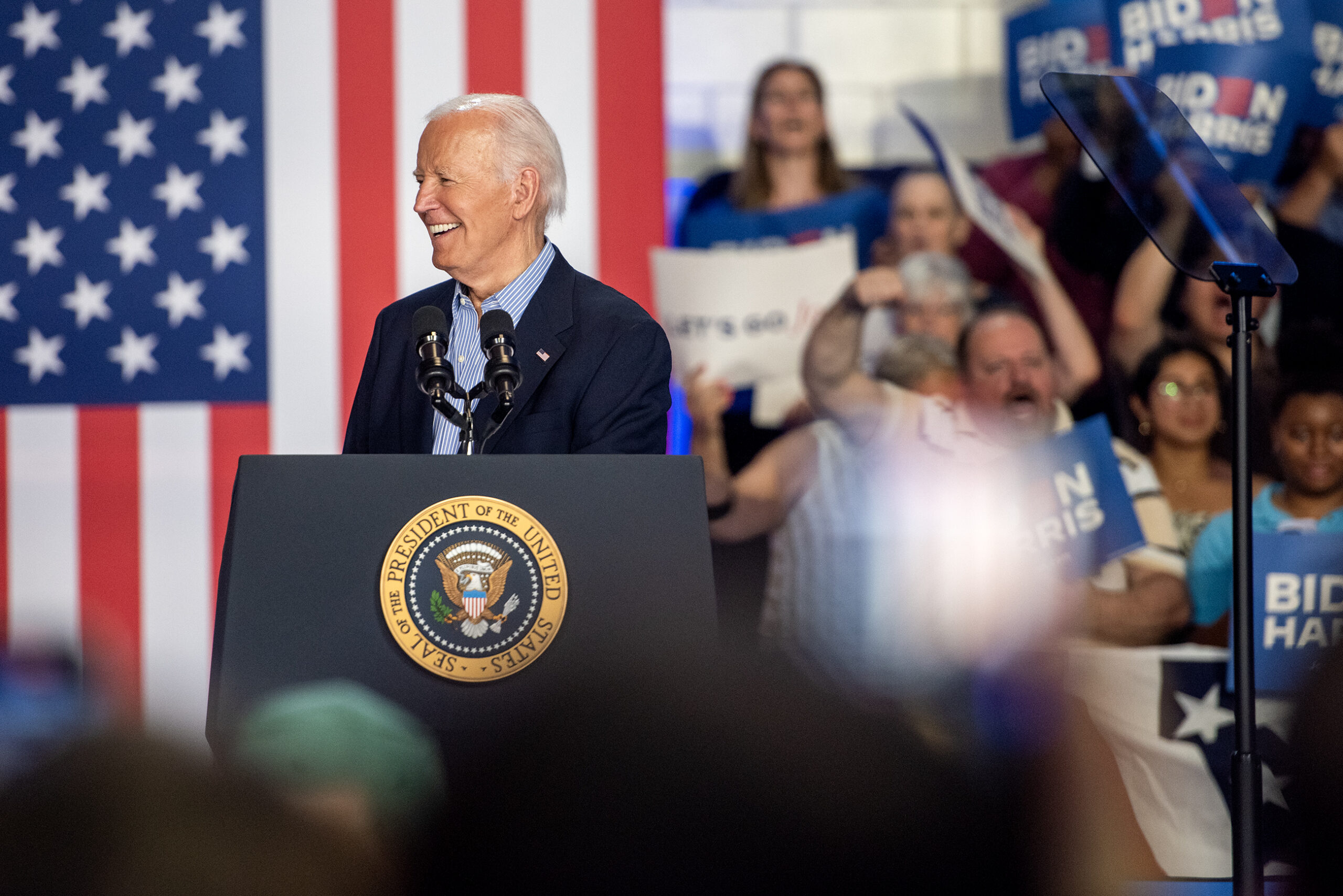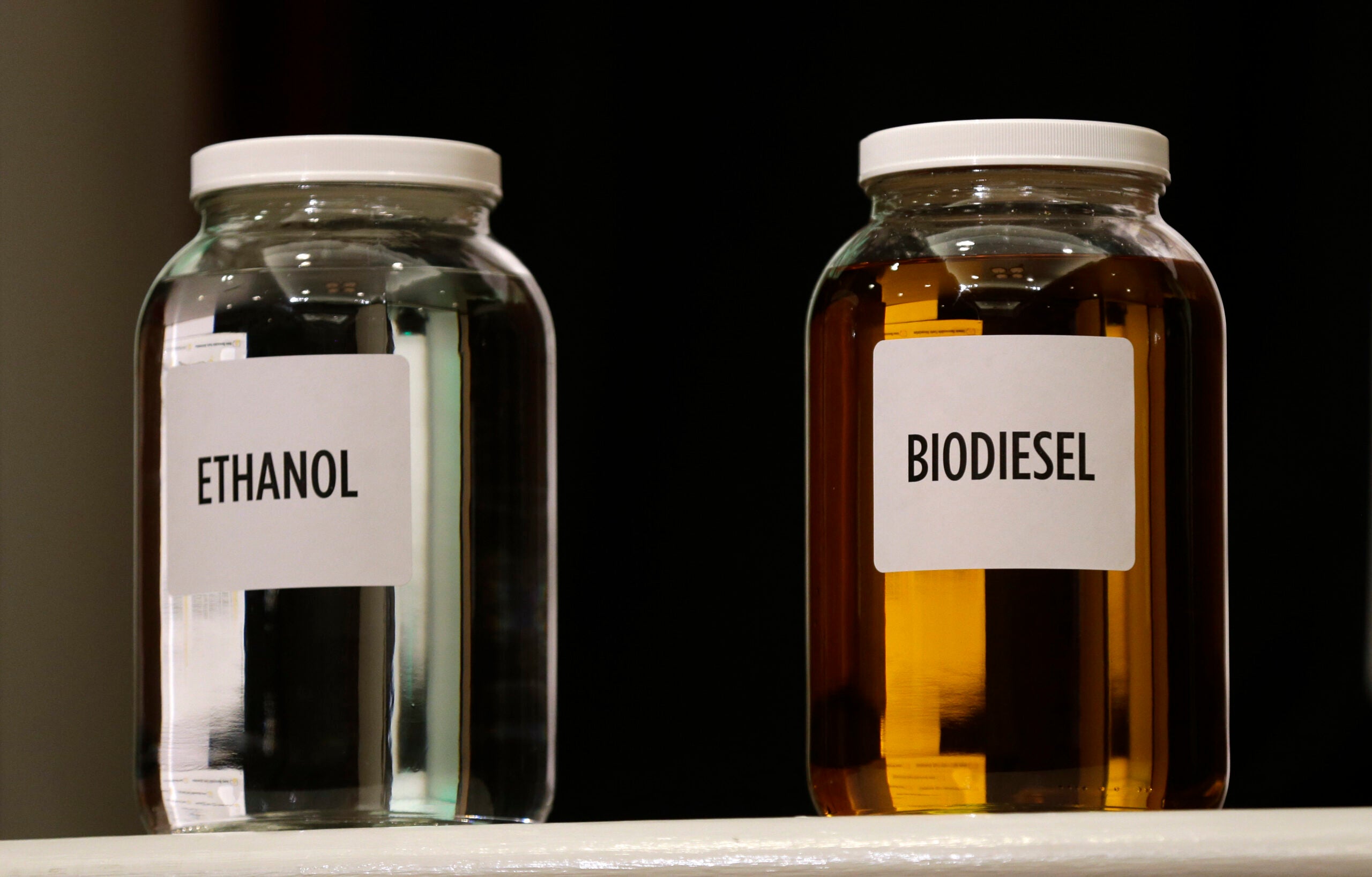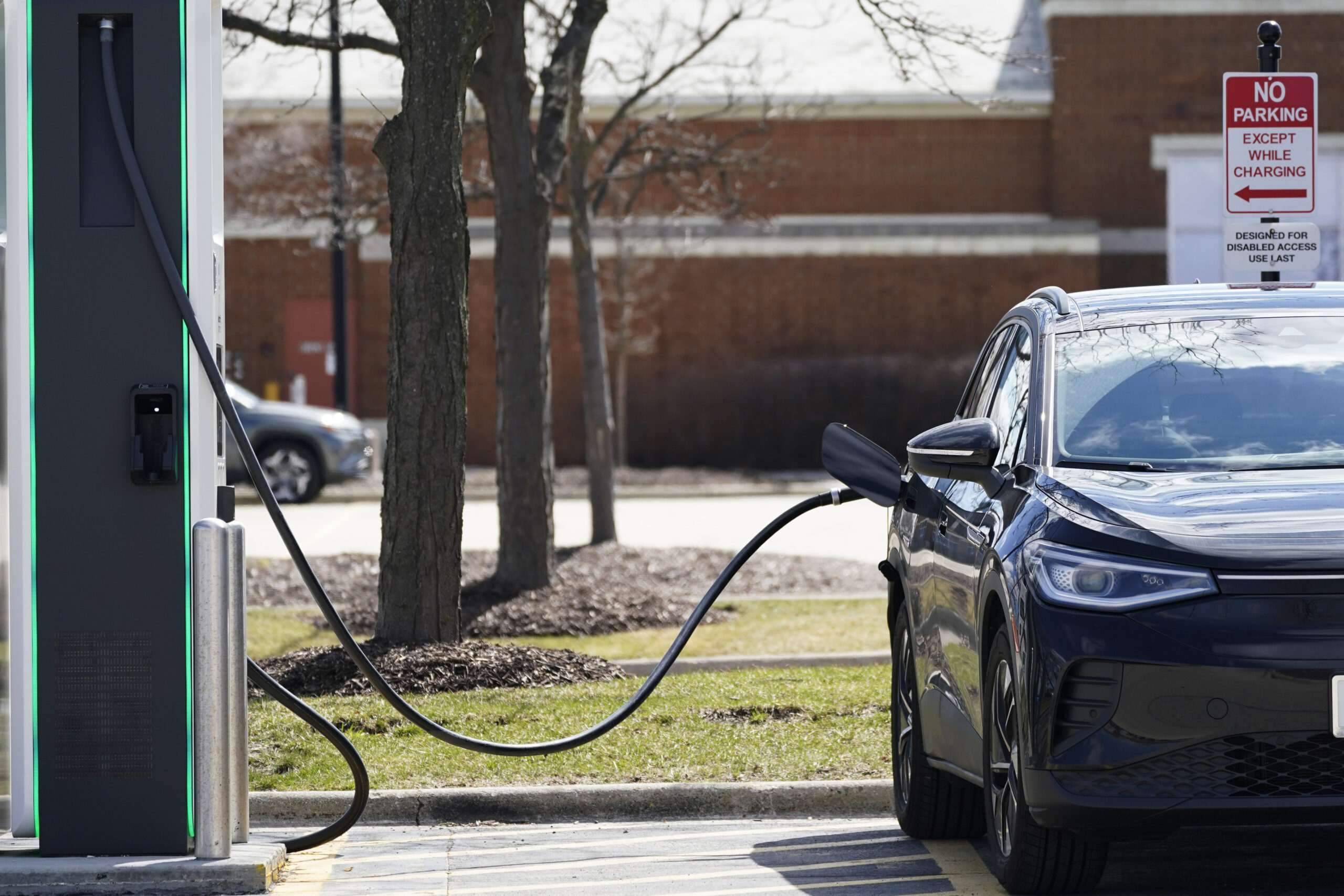Larry Meiller talks with folks from the Wisconsin Energy Institute about current research on electric vehicles, from commuter cars to pick-up trucks.
Featured in this Show
-
Electric Car Is Undergoing Resurrection, Says UW Researcher
Whether it’s prompted by the larger trend of climate change, more local issues like air quality, or the money it takes to fill up a gas tank every week, there is growing interest in alternatives to cars fueled by gasoline.
Phil Kollmeyer, an electrical and computer engineering graduate student at the University of Wisconsin-Madison, said he never expected to research electric vehicles (EVs). But, he’s been working on them ever since he saw a “silly, three-wheeled electric car” called a Corbin Sparrow at UW’s Engineering Hall.
“I thought it was cool,” he said.
EVs are nothing new — in fact, the first came out more than 100 years ago. Companies like Baker Electric and Detroit Electric were “essentially making vehicles that looked like a horse-drawn carriage but had a battery pack and a motor, and you could drive around town,” Kollmeyer said.
Those early EVs didn’t catch on well, and the field was relatively quiet for several decades as the internal combustion engine dominated the field. In the 1990s, however, there was renewed interest with the appearance of General Motors’ EV1 on the market. The story of the demise of the EV1 and of the state of California’s mandate that automakers would have to produce EVs was chronicled in the documentary “Who Killed the Electric Car?”
Kollmeyer said that most of his professors have a vivid memory of the hope and then disappointment of that period in engineering history. But today, Kollmeyer is optimistic: He said the timing has never been better for EVs to break into the market in a significant way.
“This time, I think it’s for real,” he said.
The advantages of EVs are numerous. Kollmeyer said that they include less maintenance “because there are fewer parts to break” and energy costs that are the equivalent of approximately $1 per gallon of gasoline. Plus, he said, while traditional gas-fueled vehicles are “loud, smelly, and they pollute … electric vehicles don’t have any of that. They don’t have the local emissions that are causing health problems.”
If employed on a larger scale, Kollmeyer pointed out that EVs can reduce dependence on oil, which also means lessening the need for oil imports. If they were to be adopted widely, he said that they have potential to reduce greenhouse gas emissions.
For more information on UW research on EVs, read “Driving the Electric Truck, Orchid Monroe & UW-Madison’s Win-Win.”
Episode Credits
- Larry Meiller Host
- Judith Siers-Poisson Producer
- John Greenler Guest
- Phil Kollmeyer Guest
Wisconsin Public Radio, © Copyright 2024, Board of Regents of the University of Wisconsin System and Wisconsin Educational Communications Board.





